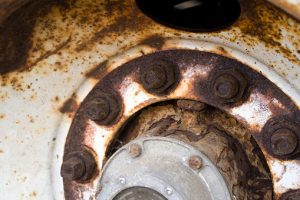The Best Ideas to Avoid Tractor-Trailer Truck Wheel Runoff Accidents
 Trucks present a unique set of dangers to the road, mostly due to their sheer size in relation to the vehicles around them. Many truck-specific issues have been under constant investigation and the subject of new laws in recent years, such as drivers being required to keep detailed logs. One matter that has had a much more limited body of research, however, has been wheel separation incidents.
Trucks present a unique set of dangers to the road, mostly due to their sheer size in relation to the vehicles around them. Many truck-specific issues have been under constant investigation and the subject of new laws in recent years, such as drivers being required to keep detailed logs. One matter that has had a much more limited body of research, however, has been wheel separation incidents.
A Canadian Corpus
The relative lack of research into truck wheel separation was being reported by Trucking Info over five years ago. At the time of that writing, the most recent data from the United States was from 1992 and seems to have helped reduce incidents when it was published. Ongoing updates to policy and procedures have also had an impact, though there is still much that the industry needs to figure out. The most effective body of research, however, was created in Canada.
In 1995, Ontario saw a spike in deaths related to tire separation events, much like the one that prompted the 1992 research in America. The province reacted initially by conducting research of its own and has continued to track known wheel separation incidents ever since.
Where the American report was focused on solutions, the Canadian effort was focused on causes and the 31 recommendations it produced targeting wheel maintenance and inspection, chains of responsibility, and legal accountability. This included levying fines against the carrier and driver of up to $50,000, requiring a training and re-certification program for those who change truck wheels that includes torque requirements, and requiring that lug nuts be tightened 50-100 miles after being installed.
Responsibility
Much of the responsibility for wheel separation was placed at the feet of carriers, drivers, and mechanics rather than manufacturers. This was not an arbitrary decision; it was found that only nine percent of all wheel separation events reported were due to a mechanical failure that would trace back to a manufacturer. Wheel bearing failures, which were found to be most often the result of poor maintenance, were responsible for 26 percent of incidents while the remaining 65 percent were due to the fasteners and their installation.
There is little reason to expect these numbers to change significantly from one side of Lake Erie to the other. When wheel separations happen and cause injury or death, they must be investigated and those who could have prevented the incident must be held accountable. If you have been the victim of a truck-related accident, contact us today to learn more about how we can help you.
